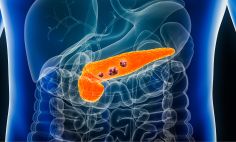Iceland may be key to helping us understand how and why women get polycystic ovary syndrome (PCOS).
Researchers, with support from the Eunice Kennedy Shriver National Institute of Child Health and Human Development (NICHD), are studying families in the Nordic country to better understand PCOS and how genetics play a role in its development. They are studying Icelandic populations because they historically keep large family trees.
Their results can help guide similar genetic studies on PCOS in the U.S.
“These types of studies have provided and will continue to provide important insights into how PCOS may be inherited, as well as the process that causes the disease in affected individuals,” said Louis V. DePaolo, Ph.D. He is the chief of the Fertility and Infertility Branch of the Division of Extramural Research at NICHD.
We already know that if a woman’s mother or sister was diagnosed with PCOS, she has a much greater chance of being diagnosed herself. But we don’t exactly know why.
Researchers have been trying to answer that question.
“There have been people looking into the genetics of PCOS for quite a while now,” said Lisa Halvorson, M.D. She is the chief of the Gynecological Health and Disease Branch at NICHD. “Studies have implicated abnormalities in genes that are important for hormone production by the ovaries, insulin resistance, and obesity, among others.”
PCOS and your gut
Researchers in another European country, Poland, recently looked at the link between PCOS and a woman’s gut microbiome, or the microorganisms that live in our intestines. Each of us has hundreds of trillions of these bacterial cells in our guts at any given time.
Researchers at the Poznan University of Medical Science, Poland, and the University of San Diego, found that the higher the woman’s levels of testosterone and androgens—which is common in PCOS patients—the less diverse their gut microbiomes tended to be.
The gut microbiome has already been known to play a role in human metabolism, nutrition, and immune function.
Though the results are preliminary, they offer an area of research that may hold clues about the development or treatment of PCOS.
Metabolic syndrome
Genetics and the gut microbiome are just the tip of the research iceberg for PCOS.
“Clinical trials are comparing ovulation-stimulating drugs, lifestyle changes, and even complementary and alternative approaches to managing PCOS,” Dr. DePaolo said.
Other studies want to learn how to prevent patients from developing related conditions, like metabolic syndrome.
Metabolic syndrome can increase the risk for heart disease and stroke. Symptoms include high blood sugar, high blood pressure, and excess body fat around your waist.
One trial in particular is studying how contraceptive pills and Metformin (which helps relieve insulin resistance for diabetes and PCOS) can help prevent metabolic syndrome in overweight or obese PCOS patients.
The researchers, who are supported by NICHD, are looking at contraception and Metformin on their own, and will also look at treatment that combines the two.
“This trial should help determine the best approaches to management of metabolic syndrome in overweight or obese women with PCOS, thereby reducing their risk for developing diabetes or cardiovascular diseases,” Dr. DePaolo said.







